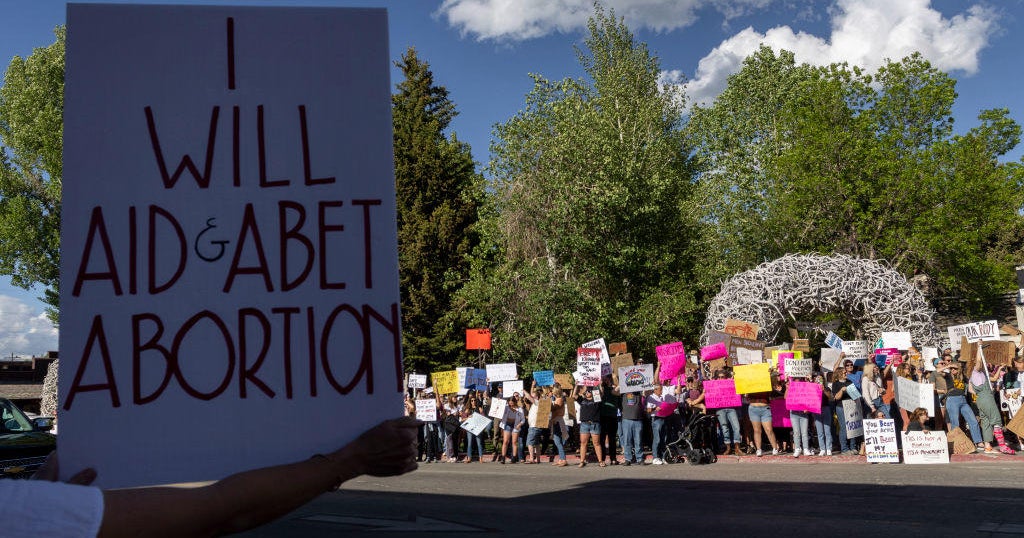Kare11
Minnesota election officials double check machine count
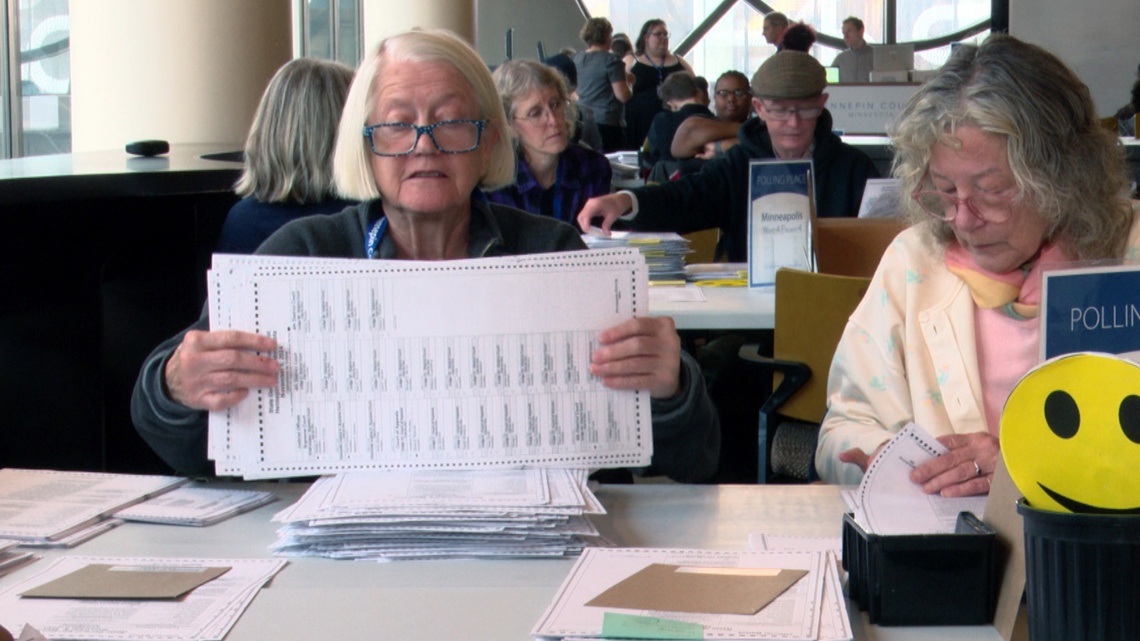

All 87 counties are doing partial recounts by hand to compare to machine results.
MINNEAPOLIS — Across Minnesota election judges are back to work taking part in post-election equipment reviews, double checking the vote tabulating machines.
These reviews happen every two years in all 87 counties no matter how smoothly the election goes, whether or not someone is questioning the accuracy of the count.
“This is a normal part of the elections process we do after every federal election, and the point of it is to make sure that election officials can satisfy themselves that the voting equipment counted all of the ballots accurately,” Ginny Gelms, Hennepin County Elections Director, told KARE. “It’s a good process for us to do. It’s in state law, and it’s also a transparent process, so people from the public and come in and observe that the voting equipment counted the ballots accurately.”
Hennepin County election judges gathered in a county office building in downtown Minneapolis Monday morning to begin an operation that would likely take at least a day and a half. They retrieved ballot transfer boxes from 12 randomly selected precincts encompassing 24,000 ballots.
Each precinct got its own table where judges sorted ballots first by presidential preference. After sorting them into candidate piles, they counted them, first by forming bundles of 25 ballots. It’s a process they must repeat for the US Senate race, and the Congressional race.
It all goes to verifying something election oversight veterans have found to be true; the machines get it right.
“The machines are quite accurate. As it turns out the machines are a lot better at counting pieces of paper than human beings are,” Gelms remarked.
Secretary of State Steve Simon came to observe and called the media’s attention to the event. He said it’s about building confidence in Minnesota’s election system.
“The reviews are always open to the public, just like the public accuracy tests that occur before the election to ensure the performance of election tabulation equipment,” Simon told reporters.
He noted that the results of the post-election review process are subject to being contested by a candidate or a party, and it’s just one of several opportunities for Minnesotans to challenge the result of election.
“We will certify results of the election Thursday, but even the certification could always be the subject of a court challenge. In our system there are many avenues of self-review, even outside challenges, all with the goal of making sure we got it right.”
Simon and the media weren’t the only ones invited to see the show. Average citizens and monitors from election integrity groups always come to watch the post-election review.
State law dictates if there are discrepancies in these spot checks, the election judges must pull in more sample precincts to review. That will help determine whether there’s a systemic problem or something isolated to the precinct where the hand count doesn’t match the machine count.
Gelms said it has never happened during her years working in elections administration, but it’s good to know there’s a process in place.
“I really appreciate being an election official working in Minnesota, because in Minnesota we have really great state-level laws that help us be transparent and satisfy ourselves after every single election, regardless of what happened in that particular election, that the system ran the way it was supposed to,” Gelms said.
“And if it didn’t, I appreciate that we have an opportunity to catch any errors here or there that might have occurred.”
After the review ends, all the ballots will go back into sealed ballot transfer boxes and go into secured storage until September of 2026.
Kare11
Oklahoma investigation involves man behind proposed Lino Lakes Muslim-centric development
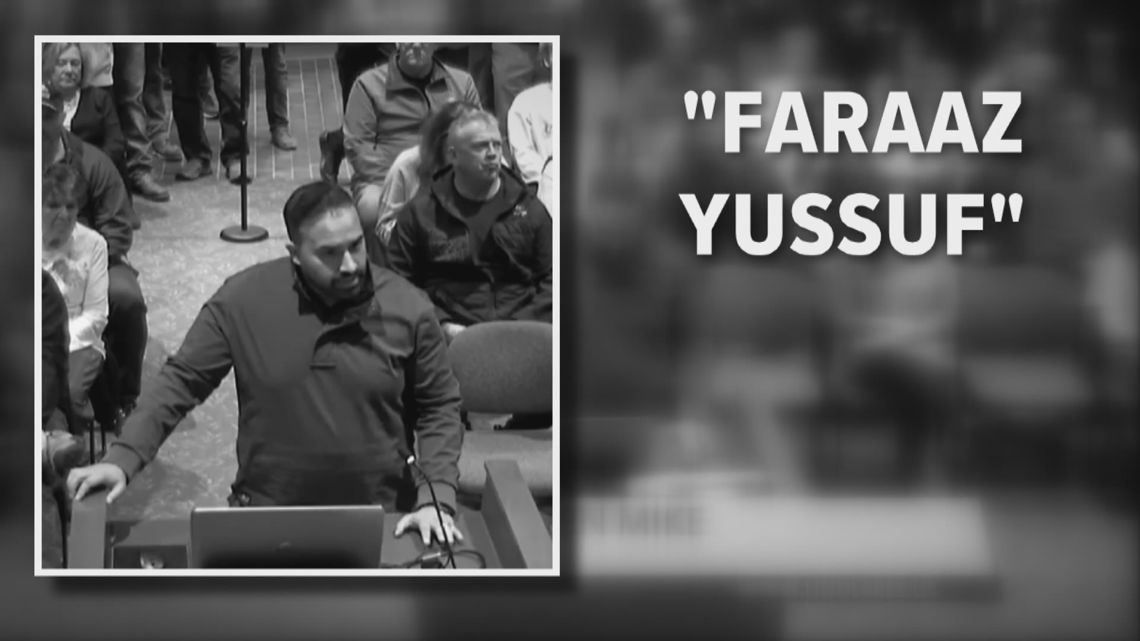

In phone recording, Faraaz Yussuf says he deceived his bosses and the client for the supply company where he worked, regarding $606,000 in materials.
LINO LAKES, Minn. — Faraaz “Yussuf” Mohammed has been the focus of a lot of news coverage this year — most recently for suing the city of Lino Lakes for alleged religious discrimination after they paused his proposed Muslim-centric Madinah Lakes development.
But when KARE 11’s story reporting that Faraaz was using an alias and didn’t have a contractor’s license made its way to Atlanta, it gave Alston Padgett of Whitco Roofing deja vu.
“It was sort of shocking that this is still going on,” Padgett said.
Padgett sent KARE 11 News a recording of an 18-minute phone call in November 2022 between their Atlanta-based commercial roofing company and on the other line — Faraaz and his boss Kristy Workman from Oklahoma City-based Elite Force Building Supply calling to issue an apology.
Invoices show Whitco Roofing paid Elite Force Building Supply $606,000 during the supply-chain problems in the pandemic. Padgett said they used Elite Force Building Supply instead of their usual suppliers because Faraaz, a salesman for Elite, claimed they had a factory in Turkey that could ship right away.
The November 2022 phone call begins with Faraaz telling the Whitco Roofing CEO, “I have been, for a lack of another way to say it, been dishonest — both to the leadership of Elite Force Building Supply and to you and your team about the whereabouts of [the product].”
Faraaz goes on to say, “I, on multiple occasions, have fabricated stories as to where the product is and where it’s going to be. And I want to apologize to you sincerely for that.”
On the call, Faraaz and Workman — who are on the line together — admit Faraaz forged bills of lading and have spoken with law enforcement in more than one state.
“The police were notified yesterday. We have been on the phone and because it’s in multiple states, it will probably be the FBI,” Workman said. “Due to forged documents, massive misappropriation of funds and materials, Fazaaz is under investigation in the state of Oklahoma and in Florida,” Workman said, adding that Whitco Roofing is not the only company involved.
Whitco Roofing’s CEO Grant Whitney then responds, “I’ll just be honest with you guys, that’s why I was hoping you would just send me my money back because we’ve been working with the FBI for weeks.”
A letter from the FBI office in Oklahoma City sent to Whitco Roofing states that they opened an investigation.
Whitney then reveals that his company has done its own digging and discovered the bills of lading that showed the ordered supplies were actually phony. At that point, Faraaz speaks up again:
“And sir, I will confirm that I am the one that’s responsible for this, 100%. This is not anything to do with Kristy or with Matthew [Farmer, Elite Force’s CEO]. I was the one that was responsible for it,” Faraaz said.
The last word from Faraaz on the phone call: “I just wanted to apologize, sir, one more time. I’m not sure how I came down this path so far and I am trying to be fully cooperative as well and trying to make this right.”
Before the call ends, Whitney tells Faraaz and Workman that he would not pursue charges if they would pay back the money. But Whitco officials say they have not received a dime. On the phone call Workman says the money was spent on business overhead.
“They never ordered the supplies. They never had the supplies. They never had a factory that could make the supplies,” said Padgett, Whitco’s CFO.
The aspect of the Lino Lakes case that concerns the Atlanta roofing company the most is that Faraaz was taking deposits for people wanting to live in the Madinah Lakes development before his company Zikar Holdings even owned the land.
“It’s a bit frustrating that they haven’t been stopped,” Padgett said.
Seven days after that November 2022 phone call, Faraaz filed a police report in Blaine where he had just moved back with his parents. According to the police report, Faraaz said he had a “falling out with his ex-business partner Matthew Farmer” and feared for his family’s lives because of a threat.
When reached for comment, Farmer said the complaint was completely unfounded.
Faraaz Yussuf Mohammed did not respond KARE 11’s requests for an interview.
A spokesperson for his company Zikar Holdings, Jon Austin, issued a statement:
“Mr. Mohammed is not aware of any investigation into his activities in Oklahoma or anywhere else. While he was employed for a period of time by the company you mentioned, he was not the subject of the civil suit or any criminal prosecution in connection with the company or its business practices.
“In fact, Mr. Mohammed’s last engagement with this company was seeking – and receiving – a court-mandated restraining order against one of its owners for his unrelenting and threatening harassment of Mr. Mohammed and his family.
“Any allegations to the contrary are false and defamatory and wholly without merit. Anyone propagating such malicious falsehoods is exposing themselves to legal actions for their reckless behavior.”
Kare11
Trial begins in case of Indian family who died crossing border
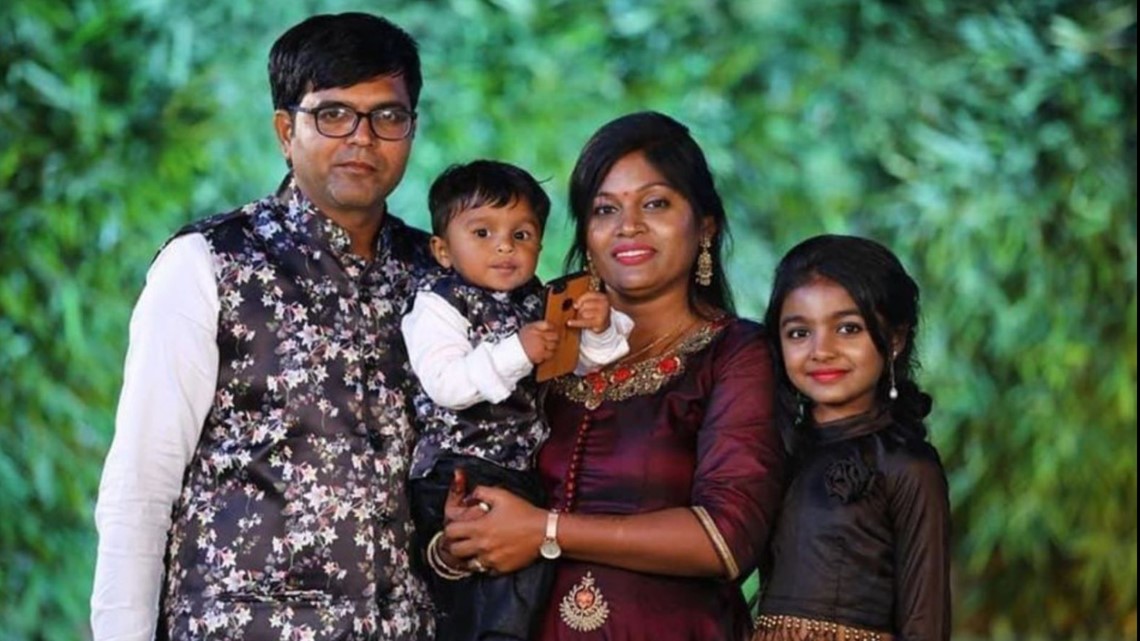

The trial, taking place in Fergus Falls, puts a spotlight on the dangers of human smuggling.
FERGUS FALLS, Minn. — A jury has been selected in a high-profile federal trial this week accusing two men of running a human smuggling operation at the U.S.-Canada border, where Manitoba, North Dakota and Minnesota meet.
The trial, taking place in Fergus Falls, Minn., is expected to last the rest of this week, according to CBC News. The case has gained international attention because the smuggling operation involved the death of the Patel family, who froze in 2022 while making the dangerous journey across vast, open farmland in sub-zero temperatures.
Prosecutors allege that Steve Shand and Harshkumar “Harry” Patel — who is not related to the family that died — worked to facilitate border crossings for a large group of Indian nationals that winter. According to court documents, Shand told investigators that “Patel recruited him to transport illegal aliens from the U.S./Canadian border in Minnesota to the Chicago area for money.”
The deaths of Jagdish Patel, Vaishali Patel and their two young children made headlines across the world, including in their home region of western India, by highlighting the desperation of migrant families and the dangers of human smugglers that take advantage of them.
Thomas Leinenweber, an attorney for Harshkumar Patel, told KARE 11 in a statement that “we look forward to the trial and the chance to show that Mr. Patel took no part in this tragic event.” Meanwhile, CBC News reported that Shand’s attorney, Aaron Morrison, argued unsuccessfully during jury selection on Monday to shield jurors from seeing photos from the family’s deaths.
The alleged smuggling operation at the Canada-U.S. border is also part of a larger immigration trend, involving migrant families attempting to cross into America through the North rather than the South. As KARE 11 reported last year, apprehensions have skyrocketed in the Grand Forks, N.D. region in recent years.
According to the latest U.S. Customs and Border Protections data, the number of apprehensions in the Grand Forks region more than tripled from 81 in 2022 to 300 in 2023. So far in 2024, the agency reports 259 apprehensions, which appears to be on pace for last year’s total with winter months now looming.
Ana Pottratz Acosta, an expert in immigration law at Mitchell Hamline School of Law in Saint Paul, said these trends may continue with enforcement continuing to tighten in the south. She also said that human smugglers are clearly preying on vulnerable families that have few other options than to leave their home country.
“Often times these are kind of complex operations,” Acosta said, “where they are often working in cahoots with other criminal organizations on opposite sides of the border to try to take advantage of very desperate circumstances.”
Kare11
7-year-old Lakeville boy wins $900 in football pool
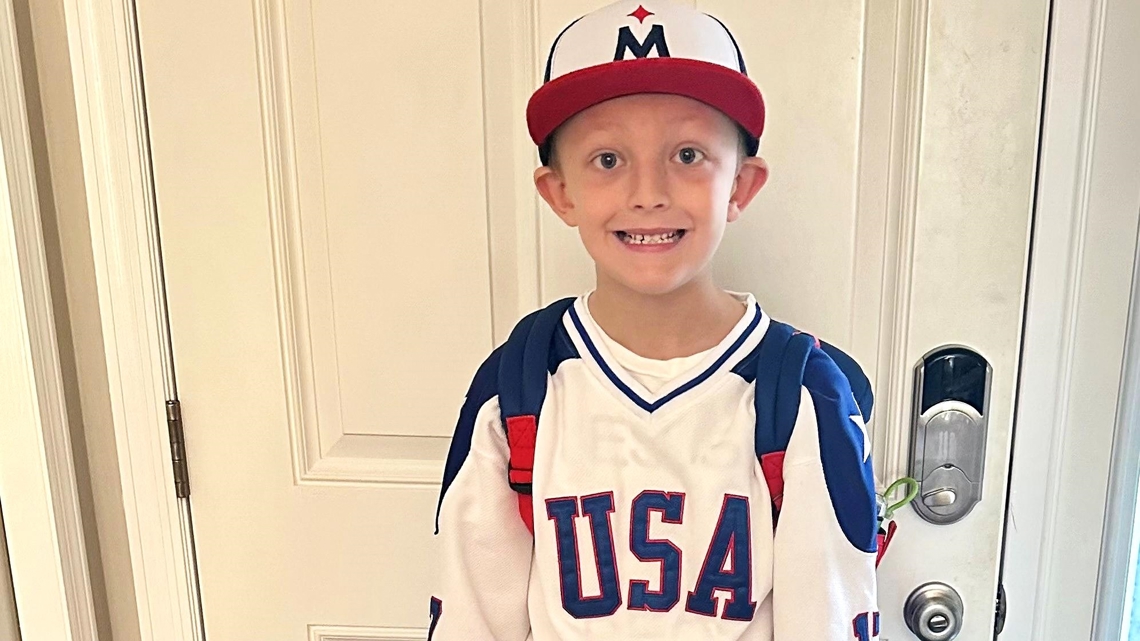
Christian Amundson’s grandma entered him in the pool. The second-grader took it from there.
LAKEVILLE, Minn. — Conceived in the heart of Lakeville, born among the regulars at Babe’s Hometown Bar, exists a hometown football pool.
“We think we started about 10 or 11 years ago,” Jane Gray says. “We call it ‘King of the Hill.’”
Jane birthed the little NFL pool that’s grown to 90 participants who each pay $10 to play.
“You pick a team to win,” Jane says, “and if that team wins you move on — but you can never pick them again.”
Simple appeals to Cathy Reppe.
“I’ve been in it a few years,” she says, “and I usually got my oldest grandson — I get him in it.”
Cathy’s grandson, Jackson, is 21.
Jackson’s little brother, Christian, is 7.
At the start of this year’s NFL season, for the first time, Cathy decided Christian shouldn’t be excluded from the football pool. So, she threw in an extra $10.
“It was the last minute. I said, ‘You know what, I’m going to put Christian in, too.’”

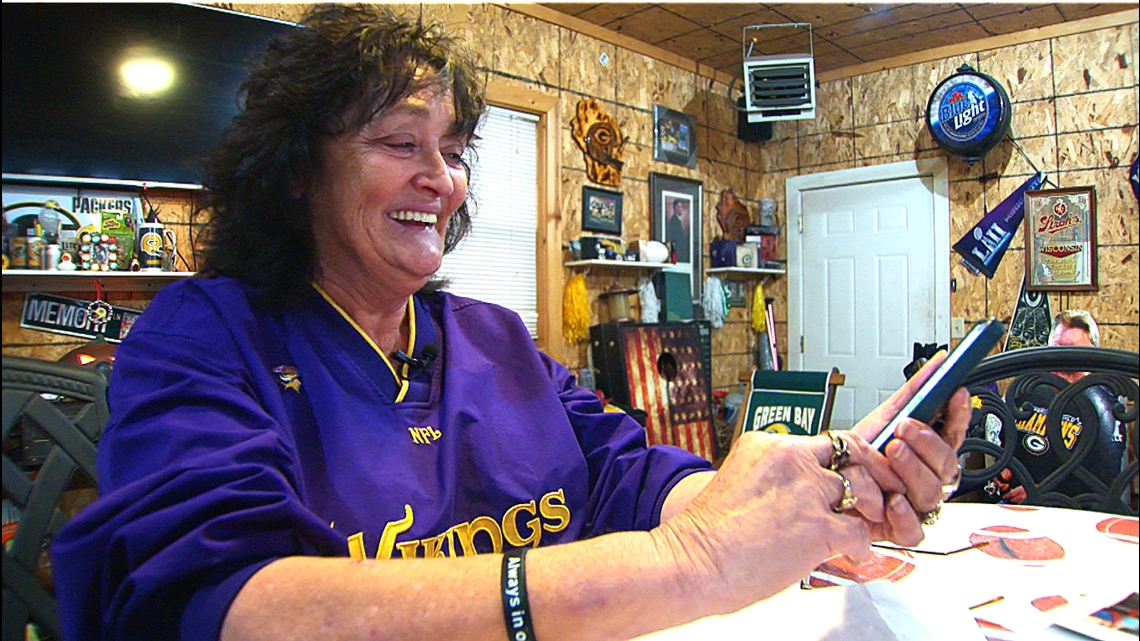
Christian loves sports. His room is a shrine to the Wild, Twins, Timberwolves, and the Green Bay Packers. The latter can be blamed on his grandpa, Cathy’s late husband Kurt, a diehard Packers fan whose influence spread first to Jackson, and then to Christian.
But now both grandsons were in the football pool, with Christian as the youngest participant ever.
Eighty-nine adults, and a second-grader.
The first week, Christian chose the Saints.
His grandmother should have.
“I got knocked out the first week,” Cathy laughs.
The second week, Christian chose the Chargers and won again.
“I think I saw their record,” he later said. “I picked the right records.”
Most of the adults in the pool did not choose so well.
“The first week we had lost 41 and the second week we had lost 34,” Jane says.
Week three, Christian picked the Bills — and won again.
Christian’s mother, Maria Amundson, wasn’t participating in the pool herself but quickly gained interest.
“Every week he made it further, his eyes got wider, and his smile got bigger, and then we found out there were seven people left — five people left — and I’m like, ‘Whoa.’”

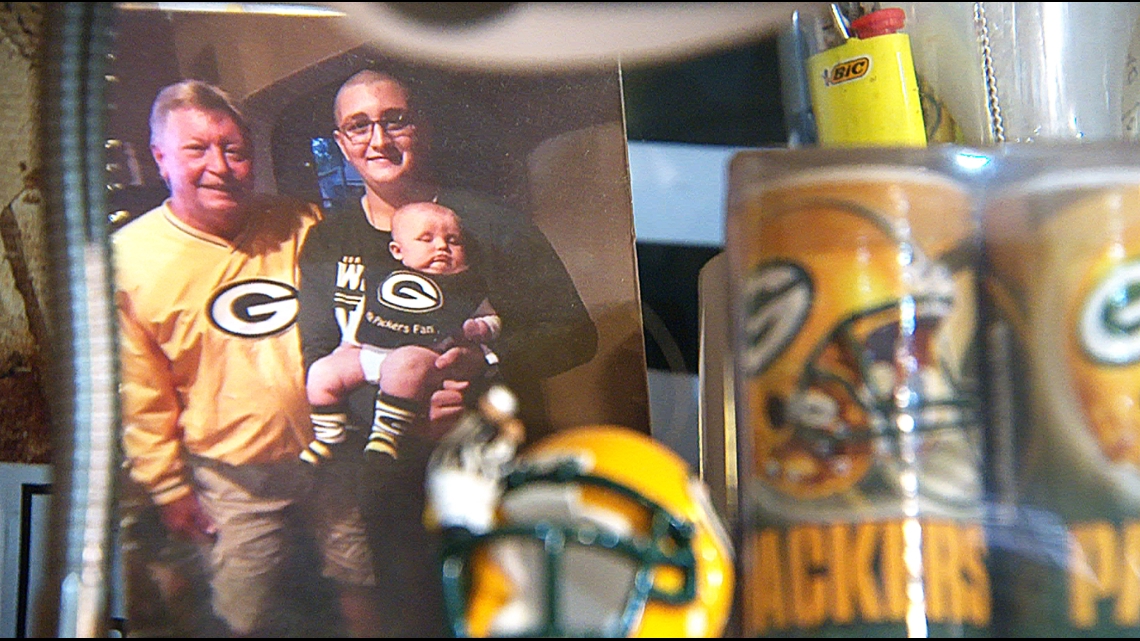
Then, week four, Christian’s mom nearly blew it.
“I put him to bed, and I forgot to ask him who he wanted,” she says.
Maria picked the Texans for her son.
By the next day, she was doubting her choice.
“I saw they were losing with about a minute left, and I thought, ‘Oh, no.’”
The Texans scored a touchdown to win — with 18 seconds left.
“And I thought, ‘Oh boy, I’m never picking again,’” Maria laughs.
At Babe’s bar, the news was starting to spread.
“I’m down to these older gentlemen,” Jane says. “He hasn’t won yet, but I said, ‘You’re getting beat by a second-grader.’”
“Yet” proved to be the operative word.
In week five, Christian picked the Chiefs.
Cathy saw the text from Jane on her phone the next morning.
It read, “Your grandson Christian won $900.”


“It was amazing!” she says, still beaming more than a month later.
The 7-year-old had beaten all 89 adults.
“I’ve never had to have the winner be driven by his mom to get the money,” Jane laughs.
Jane and her husband Tom were among the losers.
“I got to admit it was a little tough on the ego when I found out I did lose to second-grader,” Tom says sheepishly.
Tom and his friends wondered, “‘What does a second-grader do with $900?’”
A few blocks away, Christian sits in his bedroom showing some visitors, at their request, a wallet stuffed with bills.
Christian’s mom let him keep $200. The rest, she put away for later.
“Yeah, it’s a lot,” Christian says.
“He did want to bring some money to church to put in an offering,” Maria says.
Christian tried to give Jane a $50 tip.


The organizer of the football pool wasn’t accepting. “I said, ‘Nope, that’s yours.’”
Christian’s attempts to share didn’t end there.
“He wants to give a hundred to his brother,” Christian’s mother says. “His brother said, ‘No.’”
Christian got the same response when he tried to pay his grandmother back the $10 she spent on his entry fee.
“Keep it,” Cathy told him.
She also had a suggestion.
“I said, “You know what? We’ll put you in again next year.’”
Cathy says her grandson responded, “Grandma, I think I’m fine. We have enough money now.”

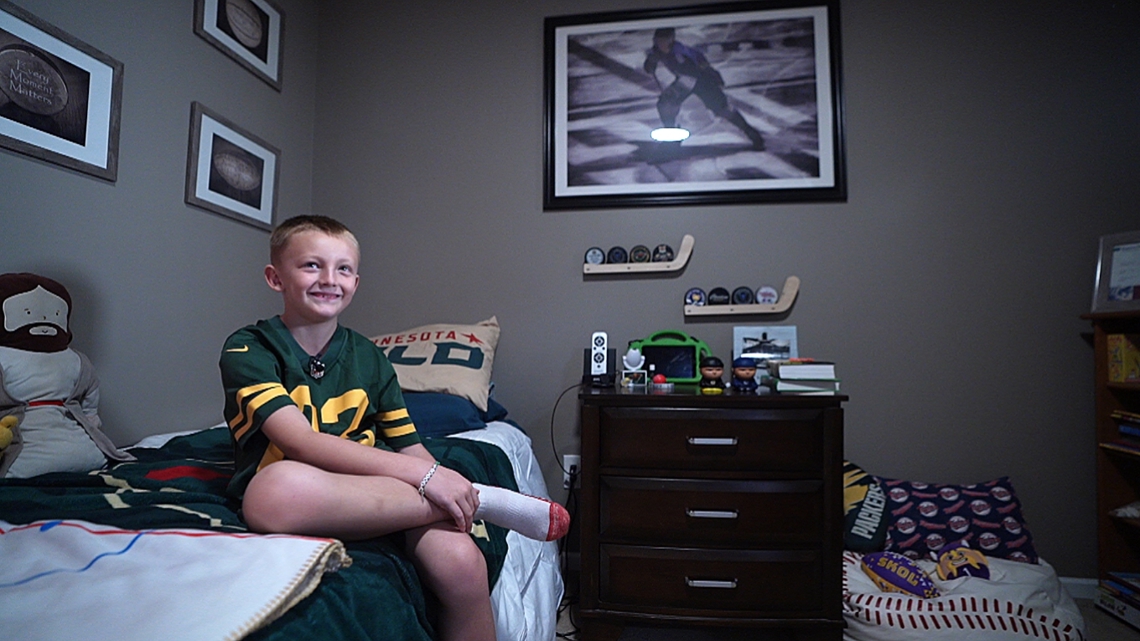
Christian did spend $40 of his winnings on more sports memorabilia for his room. This time, tiny figurines of NFL players called Teeny Mates.
They are all he wants.
“He’s a special little boy,” Maria says of her son.
Lakeville’s adults may have given birth to the $900 pool, but it took a second-grader to know happiness just doesn’t cost that much.
Boyd Huppert is always looking for great stories to share in the Land of 10,000 Stories! Send us your suggestions by filling out this form.



